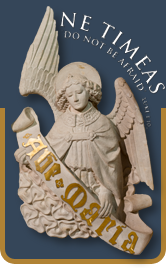Foundations of the Faith for the New Evangelisation
A formation programme rooted in prayer for all those desiring to know the Catholic faith better, and be better equipped to tell others about Christ Our Lord.
The Diocesan Catechetical Certificate
for the Archdiocese of Southwark
at the
Centre for Catholic Formation
21 Tooting Bec Rd, London SW17 8BS
This is a distance-learning course of 18 months duration
with 6 study days and 12 study units to complete.
Formation for the New Evangelisation
In forming adult Catholics for the third millennium, the last three Popes have made it clear that the context is now the New Evangelisation, a context markedly different from the previous century and needing new methods and new vigour to deliver the Good News of Jesus Christ, Son of God and Saviour, a message ‘forever ancient and forever new’.
This formation is for adult Catholics especially those who support parish life in its richness and sacredness, its fellowship, prayer and charity. It is for parents, grandparents and especially for catechists. It is also for readers, and those involved in children’s liturgy and anyone keen to know and appreciate the faith of the Church more deeply and be better equipped to defend it and pass it on.
The School of the Annunciation, a centre for the New Evangelisation, is situated at Buckfast Abbey, Devon, with other centres being developed around the UK. The context of the Benedictine monastic community has prompted the development of the programme within the Benedictine Tradition as a spiritual home that is already nourishing the new evangelisation by its hospitality and liturgy.
This programme is developed and lead by a strong catechetical team, steeped in the Church’s catechetical documents especially the Catechism of the Catholic Church, and priests will be involved in lecturing.
The twelve units of the course are grouped in two parts:
Part 1 of the Course
Six Units:
Christ, the Way the Truth and the Life –
- The Creed: Summary of the Faith: Our salvation in Christ and God’s free gift of grace.
- The Mystery of the Holy Trinity: Who is God? What does it mean to say that He is Trinity? Who is the Father? Who is Jesus Christ, and who the Holy Spirit?
- The Mystery of Christ and His Church: What is the Church? What is the importance of Our Lady and the saints in the Church?
Sources of the Faith
- Introduction to Sacred Scripture: Reading Sacred Scripture with the mind of the Church, with a focus on how both Testaments are the one word of God.
- Introduction to the Liturgy: What do we mean by “liturgy”? How can we better engage with the Mass? Other aspects such as the liturgy of the hours (Divine Office).
- Introduction to the Sacraments: What do we mean by Sacrament? Exploring all seven sacraments with a particular focus on the sacraments of initiation.
Part 2 of the Course:
Six Units:
The Search for Happiness
- The dignity of the human person: Created in the image of God and God’s call that we share everlasting happiness with Him.
- The virtues of faith, hope and love: Studied in the light of the recent teaching of Popes Benedict XVI and Francis.
- Life in Christ (Catholic moral teaching): In the light of our call to happiness, eternal life with God, and the grace of Christ.
Handing on the Faith: the New Evangelisation
- The New Evangelisation and Sacred Art: An exploration of the language of sacred art and how it can help us to explain the faith to others.
- The New Evangelisation and the Media: In a world transformed by the new media and technology, how does this affect the way people engage with the faith?
- Handing on the faith in Parish Life: Authentic lay collaboration with the ministerial priesthood in the context of the parish community.
Each of the six day includes lectures on the Catholic faith, workshops on practical skills as well as times of prayer and reflection.
Cost: 2016 £345 for 9 months.
Refreshments and lunch will be provided by the centre at an additional cost per day.
Assessment is through written exercises submitted for each unit. No exams are taken. Basic computer and internet, skills are essential.
On successful completion of all the assessment and attendance requirements the participant gains a Certificate from the School of the Annunciation. Previous studies in similar subject areas and from comparable courses may be considered for exemptions. For this, evidence of the assessment, subjects and grades will be required.
Dates for 2017
Saturday 7th January 2017 – Introduction to The Course and Units 1-3
Saturday 17th June 2017 – Introduction to Units 4-6
Saturday 9th September 2017 – Introduction to Units 7-9 (Part two of the course begins)
Saturday 6th January 2018 – A Practical Day with Workshops
Saturday 10th March 2018 – Introduction to Units 10-12
Saturday 7th July 2018 – Final group meeting day; Retreat day
Please click here for an application form
Cancellation rights
You have a 14 day cooling off period which starts from the date of application
All aspects of the course are important and attendance at each study day is mandatory for gaining the award.
Study Method
As well as the mandatory days listed above, most of your study will take place in your own home at your own pace. Each unit will be available to download from the School of the Annunciation website and you may read these on your own computer or other electronic device or print as required.
The study is very practical. Each unit is divided into four chapters. As you read through each chapter, short activities help you consolidate what you have read. These are generally for your own notes, but may, if you are not sure, be sent to your Course Leader for support. At the end of each chapter there is a short assignment (a Task) which you complete and send to your Course Leader for comments. These are to be completed as you work your way through the Unit.
Assessment at the end of the Unit is by collating three of the four tasks into one document for marking and grading.
The practical workshop day will introduce 4 different practical tasks for you to try out at home and send in a written summary of how you got one. These are not graded but are read with interest, and returned with positive comments and suggestions.
Assignments for marking are seen by a different person who reads and comments on your work, gives you a grade and sets you a target for the next assignment.
You will have as much support as you need from the School of the Annunciation staff, who will guide you through your study and answer your questions. Mostly this will be in the form of emails, as well as face to face contact at study days. Locally, the Centre for Catholic Formation will also be available for contact and questions.
Required texts for the whole course
- Bible – For study purposes, the New Jerusalem version (the Study Bible is best) or the RSV Catholic Edition are preferred.
- Catechism of the Catholic Church – if you have not got one already please make sure that the version you have includes the artwork and the list of citations at the back. See below for illustrations to help you.
Other reading (mostly Church documents) will be recommended from time to time.
Registration is now open!
Please apply as soon as possible as places are limited.
Click here to download an application form
Or email [email protected]
or ring 01364 645660 to speak to a member of staff at the school.
Catechisms – what to get and what not to get:
The best for study:
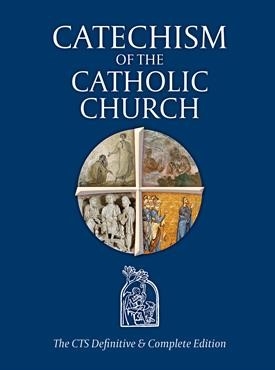
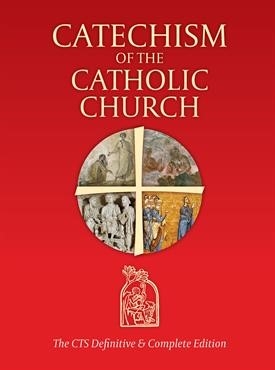
We strongly recommend this new edition published by CTS in April 2016. This edition is not only of the definitive text of 1997, it has also been updated with the new translation of the Missal and has a greatly expanded index. It is a beautiful copy which is easy to work from. The red one is smaller and in paper-back. We recommend that if you can, to get the hardback (blue) copy as you will be using this text a lot.
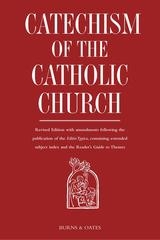
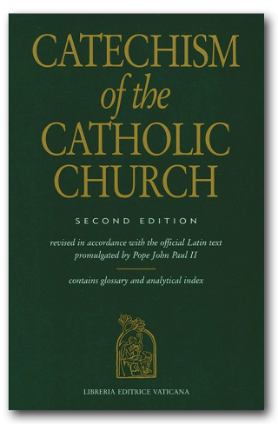
If you already have these copies you can use them for study. These have the definitive text of 1997. The red one is published by Burns & Oats; the green one is the American Version and has “Libreria Editrice Vaticana” on the front cover. It is cheaper but experience has shown that it falls apart before the course is finished.
Not suitable versions of the Catechism
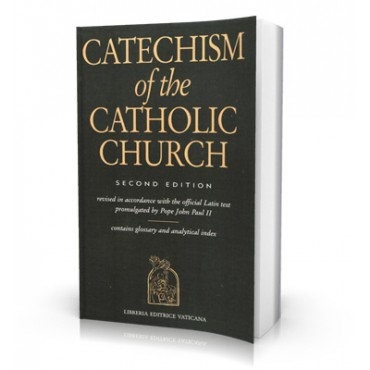
These are all are much smaller (and cheaper) but inadequate. The black, white and green versions do not have any art which goes against the recommendation of the Church for the publication of the Catechism. The white and green versions lack the citations of Scripture which is vital for your study and a proper use of the Catechism.
The earliest (not definitive) edition of 1994.
This is a yellow covered edition (or the red and white “pocket” version.) We recommend that if you have a first edition from 1994, you buy the new CTS edition of the Catechism.


